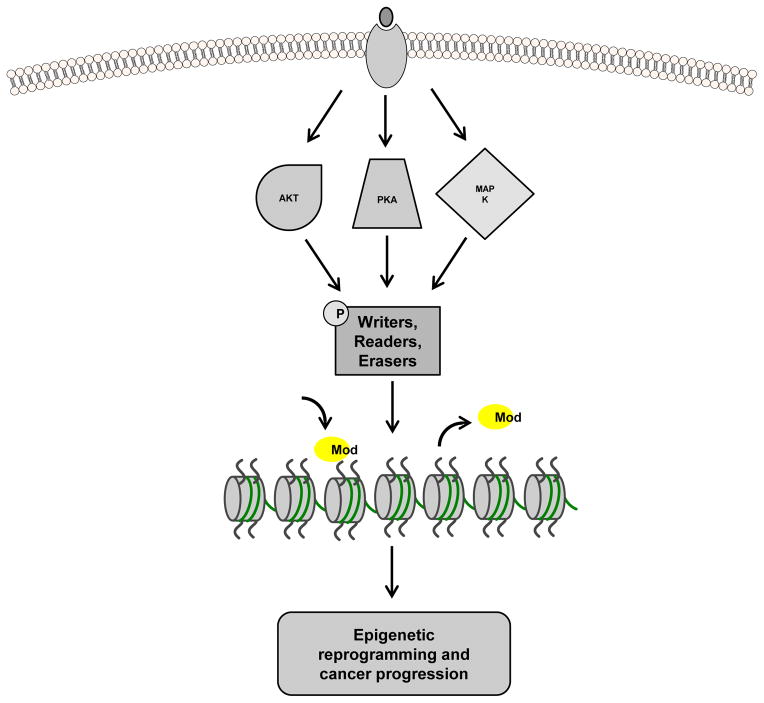Figure 1.
Model of epigenetic reprogramming by xenoestrogens and breast cancer risk. Xenoestrogens activate cell-signaling pathways, including the PI3K/Akt, PKA, and MAPK pathways (among others), leading to phosphorylation of “writer”, “reader”, and “eraser” epigenetic modifier proteins. These phosphorylation events can serve to activate or inactivate the modifier proteins resulting in alteration (either addition or loss) of specific histone modifications (Mod) and epigenetic reprogramming of target genes (i.e. oncogenes and tumor suppressors) that could ultimately contribute to breast tumorigenesis.

